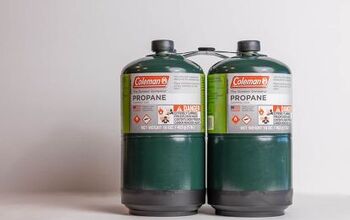Things To Consider Before Installing A Chicken Coop

With recently record-high egg prices, raising chickens is something that has entered the minds of many homeowners. If you have the space and time to dedicate to these birds, you may figure raising chickens might be a fun and even cost-saving endeavor. Before you rush out to the store and buy a box full of cute little chicks, there are a lot of things you need to consider first.
Before you build a chicken coop, you first need to make sure it’s allowed in your municipality. Decide how many chickens you will have and what type, as this will determine the coop size. Know how you will feed them, and how you will handle manure and maintain the coop. Consider factors like your climate, predators, ventilation, and whether you will let your chickens free range or not.
Having a chicken coop can be your gateway to a life of homesteading. Or it can just be a fun hobby that results in free, delicious eggs regularly. But raising chickens is not like having an aquarium. It requires a lot of logistical decisions and planning. If you are thinking about installing a chicken coop, read our complete list of everything you should consider before you bring chickens into your orbit.
13 Considerations To Make Before Installing A Chicken Coop
1. Decide On The Flock Size Before You Choose Your Coop Size
If you are planning on building or buying a chicken coop, one major decision you need to make is how many chickens you want to raise. Your flock size matters for several reasons. Most importantly, it essentially dictates how large your chicken coop must be.
For example, you should generally only have one chicken for every foot of roost bar. If you have one roost bar of 4 feet in length, then you should have four chickens. If you have two five-foot bars, then you can have up to ten chickens.
The more chickens you want, the bigger your coop needs to be. It’s smart to buy a coop that is at least slightly larger than your original desire. Most people end up with more chickens than originally planned.
2. Know Your Goals And Expectations
The next thing you need to think about before you install a chicken coop on your property is why you want one in the first place. Are you raising chickens for meat or eggs? Do you want them as pets to help fertilize your yard, or is this part of a larger goal?
Your chicken coop design, size, and location may vary based on your desires. Ensure you know your goals and expectations going into this. It will help ensure you select the right size and style of chicken coop, as well as the right type of chickens for the job.
3. Food And Water Considerations
Remember that chickens may graze on the land, but they still need food and water to survive. Ensure you have the budget, time, money, and infrastructure to feed your chickens and provide them with consistent fresh water.
If you live a busy life, consider buying self-feed and self-watering machines that are easy to use and reliable.
4. Check Local Laws And Ordinances
Another very important consideration you must make before introducing a chicken coop onto your property is learning your local laws. Many municipalities and HOAs forbid chicken coops. They are often considered an eyesore, and where there are chickens, there are often loud roosters.
Before you spend a penny on your chicken coop venture, you should double-check that there are no laws restricting chicken farming where you live, or ask your HOA. Knowing the exact rules can save you heartbreak and a lot of money.
5. Choose What Type Of Chickens Are Best For You
Remember that not all chickens are the same. Some are better for meat, others are better for eggs. Some produce lots of eggs, while others produce colorful eggs. Furthermore, some chickens are easier to care for than others.
If you’ve never owned chickens before, you should do plenty of research on different chicken breeds. Choose the right type of chickens for your needs.
6. Buying Versus Building Your Coop
One major decision you need to make when you decide to install a chicken coop is whether you will buy a prefabricated coop or build one from scratch. There are pros and cons to both. The biggest pro to a pre-built coop is that you know you are getting a quality product, and it’s a lot easier to install. It is also, however, much more expensive than building one yourself.
If you have specific design elements you want to incorporate into your chicken coop, and you have some woodworking skills, then you might want to give serious thought to building your own.
7. Consider Your Climate
Climate is a major factor you must consider when you decide on installing a chicken coop. It can determine the type of coop you buy, as well as where you install it. You need to ensure your chickens are safe and comfortable throughout the year, both in the hottest and coldest months.
8. Ventilation Is Key
Chickens don’t have the best respiratory systems, so clean air is key. Being stuck in a coop all night, surrounded by other chickens and their manure, can be bad news for chickens and their overall health.
This is why ventilation is so important. It keeps the air constantly circulating when they are cooped up. Air circulation also helps keep them cool when it’s warm outside.
9. Will You Allow Your Chickens To Free Range?
One decision you should make before you decide on a chicken coop is whether or not you will let your chickens free range in your yard. The consensus is that free-ranging is always the way to go, as long as you have an enclosed yard and not too many daytime predators.
If you don’t allow your chickens to free range, then you need an attached chicken run that is large enough for all your chickens. The run should have a minimum of 10 square feet per hen if they don’t free range.
10. Ensure Your Chickens Are Protected From Predators
Chickens have lots of predators, especially when they are sitting outside overnight. If you want your chickens to live a long life, then you must protect them from wild predators. Install a predator apron around your coop, making it at least two feet wide. You should also install reliable wire screens on all windows.
11. Find The Right Location
With a chicken coop, choosing the right location is crucial. You want an area with good drainage, plenty of shade, and lots of free range space. You also want to keep your coop away from your home, so you aren’t smelling the chickens or waking up to their clucking every night.
You also want to choose a space where it will be easy to expand your coop. Many chicken owners start small and then expand over time. Ensure your chicken coop location is conducive to an expansion.
12. Know How You Will Control The Manure
Chickens poop a lot. You don’t want to have to shovel it constantly, as this will take all the fun out of owning chickens. This is where having a manure plan is key. Free ranging helps a lot, as it allows your chickens to poop in the yard and give vital nutrients to help your lawn look great.
You can also consider building a mobile chicken coop. This allows you to move the coop every few days, so manure doesn't collect in one location.
13. Consider The Ease Of Access To The Coop
You will need to access your chicken coop every day. If you plan on collecting eggs from the coop, you will want to ensure you have access to eggs whenever you want. Therefore, ease of access to your chicken coop is key. Buy or design a coop that is easy to open, step into, and clean. Egg boxes with doors make it easy to retrieve eggs, which can make your life much easier. Do all you can to make accessing your chicken coop streamlined and simple.
Wrapping Up What To Consider Before Installing A Chicken Coop
Owning chickens can be a fun and exciting endeavor, but it requires some planning and forethought. Before you install your chicken coop, make sure it’s legal in your municipality, and ensure you have time to dedicate to feeding and caring for the birds. Choose your flock size and the breed before you select the coop. Decide whether you will build or buy your chicken coop, and choose your location wisely. Have a plan for predators and manure, and ensure your coop and the eggs inside it are easy to access.
Related Guides:

Tom Gaffey is an expert writer who currently resides in Washington D.C. Tom has a passion for real estate and home improvement writing, as well as travel and lifestyle writing. He lived the last twelve years in Hawaii where he worked closely with luxury resorts and event planners, mastering his knowledge of aesthetics and luxury products. This is where he found his passion for home improvement and a keen interest in DIY projects. Currently, Tom resides in Washington D.C, and also working on his debut fiction novel.
More by Tom Gaffey




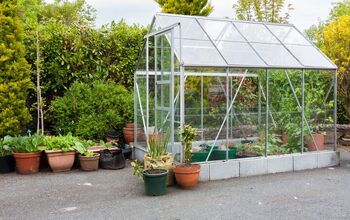






![The 10 Best Table Saws - [2022 Reviews & Buyer's Guide]](https://cdn-fastly.upgradedhome.com/media/2023/07/31/9070645/the-10-best-table-saws-2022-reviews-buyer-s-guide.jpg?size=350x220)

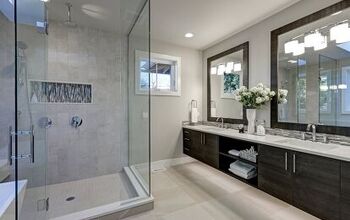


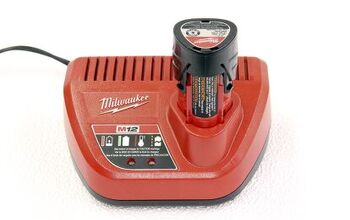


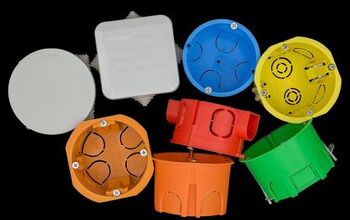
![Standard Dining Room Table Dimensions [for 4, 6, 8, 10 and 12 People]](https://cdn-fastly.upgradedhome.com/media/2023/07/31/9074335/standard-dining-room-table-dimensions-for-4-6-8-10-and-12-people.jpg?size=350x220)
